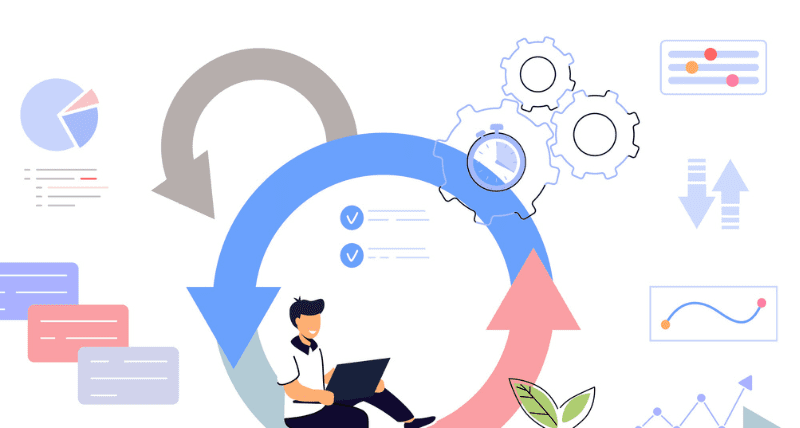For modern firms, Workday has emerged as a crucial tool for streamlining HR and finance procedures. To realize its full potential, Workday integration must be seamless. This article examines the top Workday consulting techniques for seamless integration. By adhering to the best practices, businesses may maximize Workday’s potential and improve overall operational efficiency.
What is Workday Consulting?
Workday consulting is the term used to describe the specialized advising and implementation services offered by professionals to businesses looking to integrate, optimize, and efficiently use the Workday platform. Consultants provide advice on Workday’s many modules, such as payroll, HR, and finance, while also customizing solutions to fit certain business requirements. They work with stakeholders, create unique integration strategies, guarantee data accuracy, put security and compliance first, carry out testing, and train users.
Best Practices of Workday Consulting
Successful Workday consulting entails using the following best practices to establish a seamless Workday integration:
Collaborating with Stakeholders and Subject Matter Experts
Consultants can learn more about business needs and expectations by involving HR, finance, IT, and other pertinent departments. In Workday consulting services, working together with stakeholders and subject matter experts is a vital best practice. The integration plan will align with organizational objectives thanks to this cooperative approach. Early in the process, addressing worries and expectations encourages a sense of ownership among stakeholders, resulting in easier integration and greater user adoption.
Customizing Integration Solutions
A crucial best practice in Workday consulting is customizing integration solutions. Experts must customize the integration approach because each organization has different requirements and workflows. Consultants may effortlessly integrate Workday with current systems, guaranteeing a smooth flow of data and operations by utilizing Workday’s API and integration capabilities. Through customization, Workday’s advantages are maximized for the organization’s unique requirements, improving overall efficiency and facilitating improved decision-making.
Ensuring Data Accuracy and Consistency
A crucial component of Workday consulting is ensuring data is accurate and consistent. To protect the integrity of the information throughout integration, consultants must execute strict data validation and cleansing techniques. They can spot inconsistencies quickly by monitoring data flows and implementing efficient error-handling systems. Accurate and consistent data is crucial for informed decision-making, legal compliance, system confidence, successful Workday integration, and business results.
Prioritizing Data Security and Compliance
In Workday consulting, giving data security and compliance top priority is crucial. To safeguard sensitive data during integration, consultants must adopt strict security procedures. They maintain the confidentiality and privacy of critical data by abiding by pertinent data protection laws and industry best practices. A strong security architecture protects against unauthorized access and data breaches, establishing confidence in the integrated system and giving stakeholders faith in Workday’s capability to manage sensitive information safely.
Testing and Quality Assurance
Testing and quality control are essential for Workday consulting to ensure successful integration. In-depth test cases and scenarios are created by consultants to validate various integration points. Before and after integration, extensive testing is done to find and fix any problems or anomalies. The integrated system operates flawlessly, data is accurately exchanged, and activities are carried out as planned, thanks to stringent quality assurance procedures. Effective testing reduces the possibility of disruptions and increases the Workday integration’s overall efficiency and dependability.
Change Management and User Training
Workday consulting must include user training and change management. Employees must be ready for the changes brought about by integration by consultants, who must also address any concerns and ensure a smooth transition. Thanks to adequate user training, employees can use the new system efficiently, maximizing its benefits and reducing resistance to change. Change management and exercise are key in effectively adopting and using Workday’s integrated solutions by encouraging user adoption and offering continuing support.
Monitoring and Continuous Improvement
In Workday consulting, monitoring and ongoing improvement are essential. To track the functioning of the integrated system and pinpoint areas for improvement, consultants use software development services. Stakeholders’ and users’ feedback is often received to create incremental progress. Organizations can fully utilize Workday’s capabilities and guarantee long-term success in their HR and financial processes by regularly optimizing the integration and addressing changing business needs.
Conclusion
In conclusion, a strategic approach and adherence to best practices are necessary for effective Workday consulting. Businesses may maximize the advantages of Workday integration by working with stakeholders, customizing integration solutions, ensuring data accuracy, and prioritizing security and compliance. Organizations may utilize Workday to its full potential for increased productivity and improved HR and finance operations thanks to constant monitoring and development.



